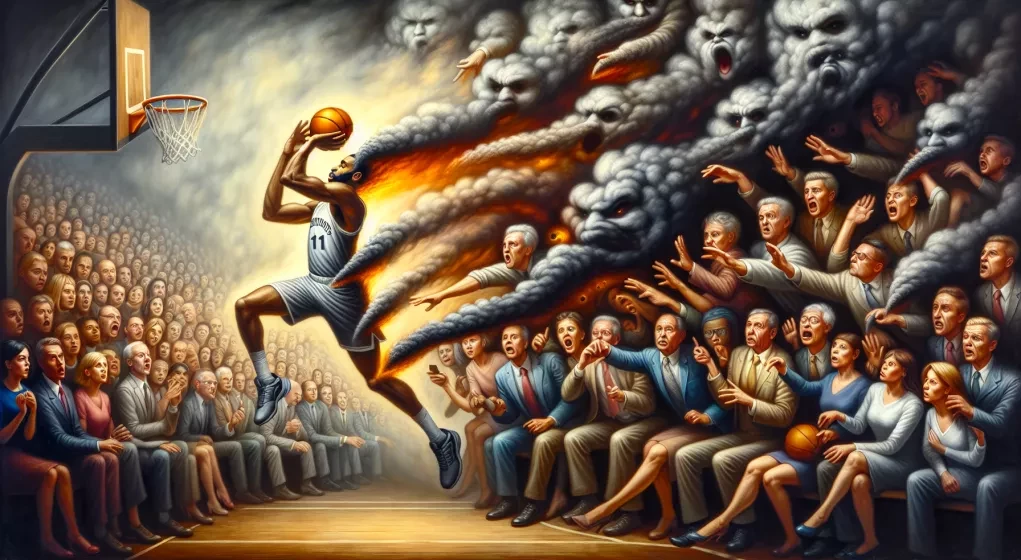In the shadow of the gleaming courts where dreams are chased and legends are born, a sordid drama unfolds, drawing the public’s gaze away from the scoreboard and onto the clandestine underbelly of professional sports. At the center of this dark tableau is former Toronto Raptors forward Jontay Porter, whose once rising star has plummeted into the abyss of ignominy and legal entanglement.
The game that thrills millions, the game of basketball, now bears a stain on its integrity, as Porter finds himself ensnared in a web spun by a New York-based betting syndicate, one that manipulated the very fibers of sport through a tactic known as “spot fixing.” Unlike the grand-scale tampering that alters game outcomes, spot fixing is insidious in its subtlety—a betrayal perpetrated by a lone agent, a singular player whose actions on the court are dictated not by the quest for victory but by the clandestine signals of outside puppeteers.
The air of scandal thickened as details emerged of two specific games—January 26 against the Los Angeles Clippers and March 20 against the Sacramento Kings—where Porter, shrouded in complicity, craftily underperformed, his actions tailored to meet the sinister forecast set by the gambling cabal. With Porter’s feigned exits due to fabricated injuries, the syndicate stood to rake in a bounty of $1,272,875 from wagers predicting his shortfall.
But fate, in the guise of vigilant sportsbook operators, intervened. Suspicious betting patterns triggered alarms, and the bulk of the winnings were promptly frozen—a momentary victory for fair play, yet the prelude to a far more sobering revelation.
The machinations of unlawful betting are naught without consequence, and woe to those beckoned by the siren call of easy riches. Four conspirators, shackles of wire fraud allegations clasping their wrists, now face the grim prospect of a two-decade tenure in federal prisons—one nabbed in the very act of fleeing American shores.
As the Ontario Provincial Police affirm the gravity of the situation, signaling the onset of a criminal investigation, the question of Porter’s fate hangs heavy in the air. While U.S. Federal prosecutors dissect the anatomy of Porter’s fall from grace—his descent into the voracious maw of gambling debt, and the Telegram whispers that bound him to his cunning creditors—a chilling reality becomes clear: This was not merely a bid for financial reprieve, but a dance with danger that has left the athlete teetering on the precipice of racketeering charges.
In the courtroom depictions, where the legal narratives of betrayal are etched, Jeff Jensen, Porter’s counsel, paints a portrait of a youth ensnared by vice, a good soul who, drowning in the throes of addiction, found himself submerged in a world far darker than he ever imagined. Jensen’s words evoke a somber tableau—a reminder that heroes and hopefuls, too, can bear scars and fall prey to the temptations that lurk just beyond the limelight.






